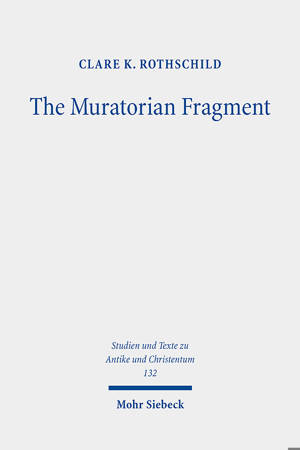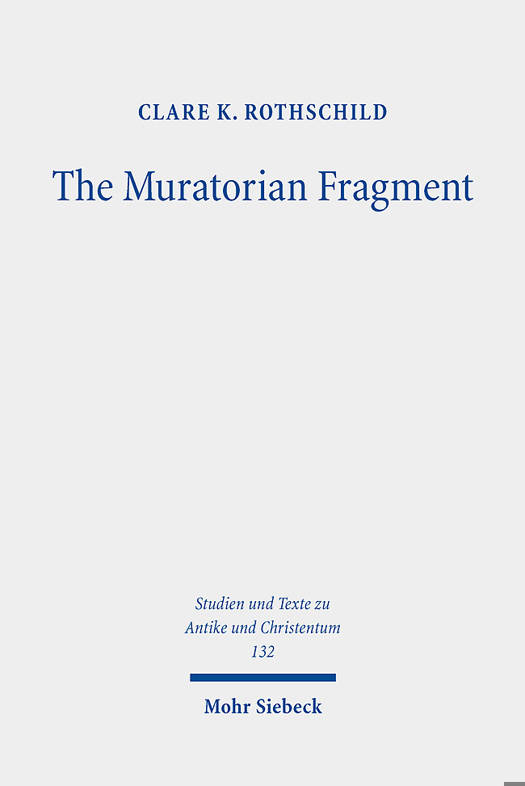
- Afhalen na 1 uur in een winkel met voorraad
- Gratis thuislevering in België vanaf € 30
- Ruim aanbod met 7 miljoen producten
- Afhalen na 1 uur in een winkel met voorraad
- Gratis thuislevering in België vanaf € 30
- Ruim aanbod met 7 miljoen producten
Zoeken
Omschrijving
This volume offers an introduction, critical edition, and fresh English translation of the Muratorian Fragment. In addition to addressing questions of authorship, date, provenance, and sources, Clare K. Rothschild carefully analyzes the text's language, composition, genre, and possible functions with reference to a breathtaking range of scholarly positions and findings from the eighteenth century to the present. She also investigates its position within the eclectic eighth-century Muratorian Codex (Ambr. I 101 sup.). A line-by-line philological commentary draws attention to literary, philosophical, and religious aspects of the individual traditions represented. This study should be of interest to scholars of the New Testament and early Christian literature, as well as experts on the emergence of the canon and historians of the Latin Medieval West.
Specificaties
Betrokkenen
- Auteur(s):
- Uitgeverij:
Inhoud
- Aantal bladzijden:
- 482
- Taal:
- Engels
- Reeks:
Eigenschappen
- Productcode (EAN):
- 9783161611742
- Verschijningsdatum:
- 1/04/2022
- Uitvoering:
- Paperback
- Formaat:
- Trade paperback (VS)
- Afmetingen:
- 226 mm x 145 mm
- Gewicht:
- 3755 g

Alleen bij Standaard Boekhandel
+ 239 punten op je klantenkaart van Standaard Boekhandel
Beoordelingen
We publiceren alleen reviews die voldoen aan de voorwaarden voor reviews. Bekijk onze voorwaarden voor reviews.











